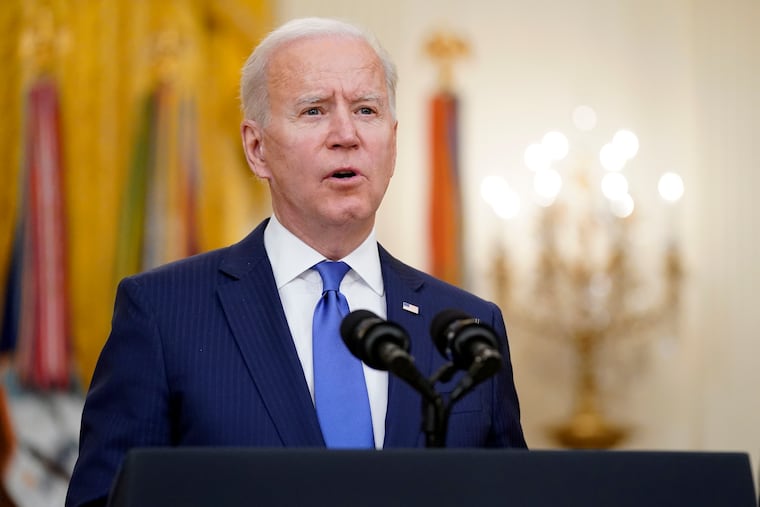White House prepares massive infrastructure bill with universal pre-K, free community college, climate measures
The infrastructure part of the plan includes hundreds of billions of dollars for repairing the nation's roads, bridges, waterways, and rails.

WASHINGTON - White House officials are preparing to present President Joe Biden with a $3 trillion infrastructure and jobs package that includes numerous sweeping domestic policy priorities, according to three people familiar with internal discussions.
After completing the $1.9 trillion coronavirus relief package earlier this month, Biden administration officials are piecing together their next major legislative priority. While no final announcement has been made, the White House is expected to push a multitrillion jobs and infrastructure plan as the centerpiece of the president's "Build Back Better" agenda.
That effort is expected to be broken into two parts - one focused on infrastructure, and the other focused on other domestic priorities, such as universal prekindergarten, national child care, and free community college tuition. Many details of the plan were first reported by the New York Times. The people, who spoke on the condition of anonymity to describe private conversations, stressed planning was preliminary and subject to change. Some aides stressed that the final price-tag of the package remained unclear.
The infrastructure part of the plan includes hundreds of billions of dollars for repairing the nation's roads, bridges, waterways, and rails. It also includes funding for retrofitting buildings, safety improvements, schools infrastructure, and low-income and tribal groups, as well as $100 billion for schools and education infrastructure.
The infrastructure component of the proposal includes $400 billion in spending to combat climate change, including $60 billion for infrastructure related to green transit and $46 billion for climate-related research and development. The plan also would aim to make electric vehicle charging stations available across the country. The measure would also include $200 billion for housing infrastructure, including $100 billion to expand the supply of housing for low-income Americans.
The second component of the effort would include many of Biden's other domestic priorities. Those include universal prekindergarten and free community college tuition. The package would also dramatically expand spending on child care. The measure would also extend for several years the expansion of the Child Tax Credit recently signed into law for just one year as part of the $1.9 trillion stimulus plan.
The legislation would also include extending subsidies for the Affordable Care Act, as well as free and reduced tuition at Historically Black Colleges and Universities.
A White House spokesman declined to comment.
Biden is also expected to be presented with a menu of tax options by Treasury officials to fund the plan. Biden campaigned on raising the corporate tax rate from 21% to 28%, as well as increasing taxes on wealthy investors. It was not immediately clear which of his tax plans would be included in the final legislation.
White House officials are also planning to include a measure to force pharmaceutical companies to either lower their prices or pay a steep penalty. The White House's efforts are likely to be similar to the prescription drug bill unveiled by House Democrats in 2019, which aimed to respond to voter frustration over the rising costs of prescription drugs across the country, the people aware of the internal discussions said.
The Congressional Budget Office has estimated that House Democrats' bill would save the government approximately $450 billion over the next decade. By lowering the cost of prescription drugs, the government would spend significantly less on Medicare and other public health programs.
Although he initially promised to release the jobs package in February, Biden has not yet released his jobs and infrastructure package.
White House press secretary Jen Psaki has given little guidance beyond saying the administration’s next legislative priority has not been determined.